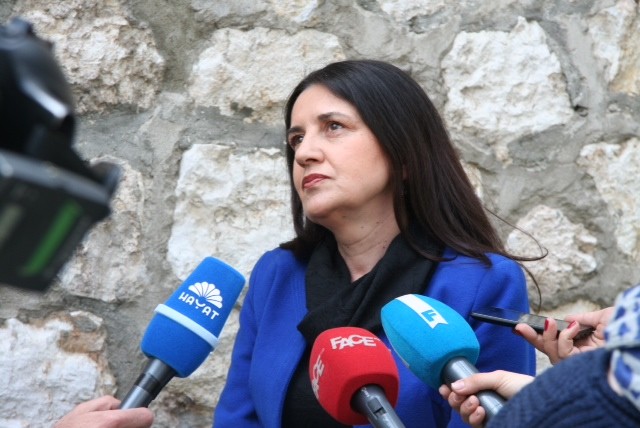
Sept. 2014—They say that imitation is the sincerest form of flattery, but that’s not true for artisans of Sarajevo, Bosnia and Herzegovina (BIH), who have learned, honed and passed on their skills from generation to generation for hundreds of years.
But they can now feel safe knowing that their hard work and artisanal skills cannot be imitated by some copycat abroad and sold on the streets for pennies as the real thing. In April 2014, the Institute for Intellectual Property of BiH for the first time awarded Sarajevo artisans and their crafts with certificates of authenticity with trademark protection.
The event marked the end of a three-year process of certifying the authenticity of traditional crafts and products from Baščaršija, the historic center of Sarajevo, including Sarajevo filigree, traditional Bosnian slippers, engraving on copper and tin, production of Boza and Salep beverages, and goldsmithing.
It also signifies the first step toward recognition of traditional trades, which represent a part of Sarajevo’s intangible heritage and play an inextricable role in the city’s tourism.
The certification process was initiated by the Fostering Interventions for Rapid Market Advancement (FIRMA) project—funded jointly by USAID and the Swedish International Development Cooperation Agency—in conjunction with the ZUP Baščaršija Association and the artisans themselves. The undertaking involved an array of experts from various fields such as historians, ethnologists and lawyers, and the compilation of complex regulatory legal documents, including detailed files for every craft.
Nermina Begović, who received a certificate for her jewelry shop Čengić, says that the artisans have waited a long time for a way to protect the authenticity of their products.
“Given the large number of craft shops that have sprung up in Baščaršija, it is necessary for us to protect our traditional crafts. Such certifications will enhance the market value of authentic products, while improving our business and the quality of work,” Begović explains.
Thanks to the “Original Sarajevo Quality” markings displayed by certified artisans in their shop windows, visitors to Sarajevo will be able to differentiate between authentic Baščaršija crafts and poor imitations that may have been imported.
This first group of certificates—to 18 Sarajevan artisans—paved the way for other crafts to be similarly recognized and protected in the future.
“That which belongs to the tradition of Baščaršija and its citizens has been protected for the first time and, in essence, returned to artisans who remained true to the traditional way of work,” said Ibrahim Hadžibajrić, mayor of Stari Grad municipality where Bascarsija is located.
Through the FIRMA project, which ran from September 2009 to September 2014, USAID supported a number of activities in Baščaršija to strengthen Sarajevo tourism, including helping artisans display their products at public events such as the Sarajevo Holiday Market; installing historical signs along Baščaršija streets; campaigns to better promote this part of the city and increase the number of tourists; and re-starting a seasonal bus line between Sarajevo and Mt. Jahorina.
LINKS







Comment
Make a general inquiry or suggest an improvement.